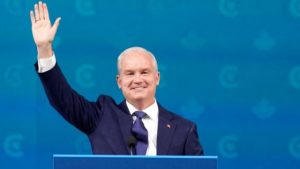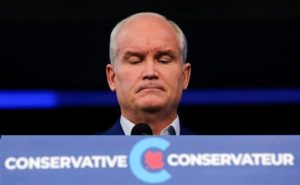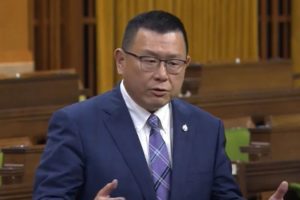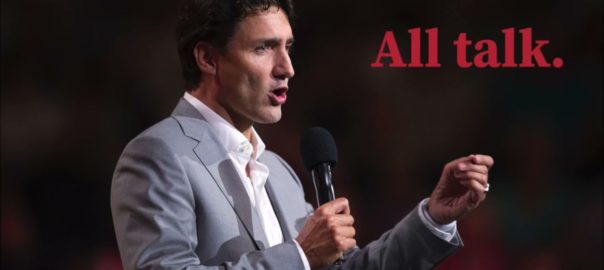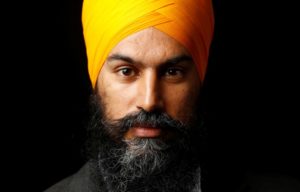After going online in 2020, the Vancouver International Film Festival (VIFF) returns on Friday, October 1st thru Monday, October 11th — to celebrate its 40th annual edition with a vibrant hybrid in-person and streaming lineup, with 85% of the VIFF 2021 film slate available online not just for loyal VIFF fans locally, but for patrons throughout British Columbia and across Canada, through the VIFF Connect online streaming web portal.
Although the Vancouver International Film Festival has traditionally commenced in late September with a two-week run, the somewhat truncated 2021 hybrid edition running from Friday, October 1st thru Monday, October 11th, will still feature 113 groundbreaking and celebrated original films, with 80 narrative and 33 documentary features arriving from 50 countries across the globe, 24 of which are world premières, 26 North American and 28 Canadian feature film premières, 6 of which are made by BC filmmakers. Eighty curated short films are also featured in the VIFF 2021 lineup, 36 of which are Canadian.

Strict British Columbia COVID-19 public health and safety protocols will be in place for in-person screenings, including mandatory mask wearing in screening rooms and common areas, and BC Vaccine Card proof that cinephile patrons have been vaccinated, before patrons will be granted access to the eight VIFF cinema venues.
VIFF executive director Kyle Fostner says he believes there’s a growing group of patrons who are ready to return to the theatre.
“Culturally, as an organization and as a community VIFF needs to have some kind of statement of intent around returning to cultural activity and to cinema,” Fostner says, pointing out that two local independent theatres, the Rio and the Cinematheque, have already been open for some time and attracting audiences.

Meanwhile, VIFF Expanded has partnered with two B.C. venues to present films in-cinema to British Columbians outside of the Lower Mainland, with 8 screenings scheduled at the Tillicum Twin Theatres in Terrace, and 12 VIFF films set to screen at the newly renovated Patricia Theatre in Powell River.
(Note: each film title — and more — throughout this column links to the VIFF website page)
Japanese-English director Will Sharpe’s The Electrical Life of Louis Wain, a whimsical Victorian biopic starring Benedict Cumberbatch and Claire Foy, was selected by VIFF Associate programmer Curtis Woloschuk as VIFF’s opening night film — on Friday, October 1st, with Céline Sciamma’s exquisite Petite Maman — which débuted at the Berlinale earlier this year acclaim — and a favourite of Mr. Woloschuk’s, selected as VIFF’s closing night film, on Monday, October 11th.
The array of titles given special presentations assembles a collection of works by leading filmmakers spanning the globe, from …
-
- One Second (China) by Fifth Generation filmmaker Zhang Yimou;
https://youtu.be/Ej7FSmzijNE
-
- Memoria (Thailand/Colombia/U.K.) by Thai indie director Apichatpong Weerasethakul;
-
- Drive My Car (Japan), Ryusuke Hamaguchi’s adaptation of a short story by author Haruki Murakami, available only as an in-person screening. A favourite of VIFF International Films programmer, Alan Franey;
-
- Belfast (U.K.), an autobiographical film by British filmmaker Kenneth Branagh, recent winner of the Audience Award at the Toronto International Film Festival;
-
- The Power of the Dog (Australia/New Zealand), the “other” Benedict Cumberbatch film at VIFF this year, and winner of the Silver Lion for Jane Campion as Best Director, at Venice 2021;
-
- Bergman Island (France/Sweden) by French writer-director Mia Hansen-Løve;
-
- The Worst Person in the World (Norway/France/Sweden/Denmark) by Danish-Norwegian director Joachim Trier.
“Seventeen VIFF films will be available as in-person screenings only,” VIFF’s International Films programmer Alan Franey told VanRamblings.
“And that includes Drive My Car, Ryûsuke Hamaguchi’s sombre drama about love and loss, that was for me an engrossing and exalting film experience, and a film not to be missed. Arising from concerns about piracy, I was unable to move various studios to release their films to our secure streaming VIFF Connect platform.”
List of #VIFF40 In-Cinema Only Films#Sinkhole #BetaTest #KickingBlood #CompartmentNo6 #StrawberryMansion #WorstPersonInTheWorld #TaleOfLoveAndDesire #RedRocket #BarbarianInvasion #ByeByeMorons #PetiteMaman #OfficialCompetition #OneSecond #NightRaiders #PowerOfTheDog + more? pic.twitter.com/1HwgLn6CH6
— Raymond Tomlin (he/him/his) (@raytomlin) September 30, 2021

As part of VIFF’s 40th anniversary celebrations, the festival will present a free online tribute talk. VIFF Leading Lights will spotlight Japanese auteur Kore-eda Hirokazu (Like Father, Like Son) in conversation with South Korean filmmaker Bora Kim (House of Hummingbird), whom Kore-eda chose as an emerging director to discuss filmmaking with.

Other speaking engagements at VIFF Talks will feature film professionals sharing their expertise, including documentary filmmakers Julie Cohen (My Name is Pauli Murray) and Jonas Poher Rasmussen (Flee).
On the industry side, online events include master classes with Mare of Easttown director Craig Zobel and The Suicide Squad editor Fred Raskin, as well as a talk by The Green Knight’s production designer Jade Healy.

Canadian productions receiving special presentations include the Indigenous sci-fi drama Night Raiders (Canada/New Zealand) by Cree-Métis director Danis Goulet, starring Vancouver’s Elle-Máijá Tailfeathers, and All My Puny Sorrows (Canada), director Michael McGowan’s adaptation of Miriam Toews’ 2014 novel.

More VIFF 2021 highlights include VIFF AMP , the annual forum for music in film, which runs from October 8 to 10; VIFF Totally Indie Day on October 2nd, devoted to independent filmmakers and cinema; and the VIFF Immersed exhibition, October 1 to 11, to showcase virtual reality and augmented reality storytelling.
VIFF Ticket Info | VIFF Connect | In-Person | Passes | Tickets & Ticket Packs

As has long been the case, VIFF will offer a wide array of different ticket packages and passes: patrons can purchase an all-festival, all-access in-person pass for $725, while the VIFF Connect pass will be available for $110 for a household, $80 for an individual, with a $60 student rate. The four-ticket in-person pass price is set at $48, seniors $44, students, $32. Regular in-person admission will cost $15 – $17.
In 2021, patrons may enjoy the big screen cinematic experience, or watch from the comfort of their home, or mix and match to create a personal festival journey.
“VIFF’s lineup offers a plurality of perspectives, with powerful narratives from Indigenous filmmakers, poignant stories from female perspectives, and bold work that confronts critical issues such as colonialism, racism, and the climate crisis,” says Woloschuk. “The films VIFF programmers have selected testify to the power of creativity, reminding us: even when it’s darkest, we can dream.”
“I think the minute I see a VIFF screening of 100 appreciative audience members rapt in attention watching a VIFF film in-cinema it will be a victory,” enthuses Fostner, who adds that despite the ravages of the pandemic, VIFF remains strong.

The Vancouver International Film Festival is presented on the traditional and unceded territories of the Coast Salish peoples, and the xʷməθkʷəy̓əm (Musqueam), Skwxwú7mesh (Squamish), and səl̓ílwətaʔɬ (




